How to Effortlessly Unleash Your Creativity and Insight Contributed by: Georgia Ellis Getting out of bed usually takes me a while, and I used to think this was a bad thing. Why aren’t I jumping out of bed like everyone else? I had pretty good sleep hygiene practices and usually get between 7-8 hours of sleep… surely I can get up straight away… but I couldn’t… I even began to feel a little guilty at my slower start to the day, especially when people like Mel Robbins (American podcast host, author, motivational speaker, and former lawyer) devoted an entire book to “The 5 Second Rule” - a simple technique to encourage us to leap out of the sweet warm comfort of our beds and go get our goals… Robbins used it to help herself get out of bed, back in her tough days. She found that if she counted backwards; “5-4-3-2-1 and ACTION!”, she would stop making excuses and jump right up. I won’t deny that having a hard time waking up in the morning could be the result of the natural effects of sleep inertia, your sleep habits and schedule, or sometimes other conditions… but in my case, there was something else going on, something that seemed to leave me feeling inspired and set me up for the day… I noticed that if I lingered in bed for roughly 10-15 minutes upon waking, something magical began to happen…Ideas and solutions would bubble up from within my psyche… ideas for programs and offerings, solutions to problems I was facing and even ways to have challenging conversations I was avoiding would present themselves.
As I lay there, I seemed to have access to what Napoleon Hill refers to in his seminal work “Think and Grow Rich” as “Infinite Intelligence”. According to Hill, Infinite Intelligence refers to a universal, all-encompassing intelligence that exists beyond the realm of human understanding. It's a form of divine intelligence that is accessible to individuals through their subconscious minds. Hill suggests that Infinite Intelligence is the source of all inspiration, creativity, and knowledge. It's the force that can guide individuals toward their goals and desires if they learn to tap into it effectively. Is this what I was tapping into as I lingered longer in bed? According to Hill, we can communicate with and receive guidance from this infinite intelligence, which can help us achieve our goals. Let's face it, as business owners, managers, and leaders, we're constantly striving to innovate, solve problems, and drive success. But what if we are overlooking one of the most powerful moments for creativity and insight that happens not in the boardroom, or brainstorming session but in the quiet moments between sleep and wakefulness? Picture this: you wake up in the morning, the soft glow of dawn filtering through your window. Instead of immediately leaping out of bed and diving into the day's tasks, you take a moment to linger, to let your mind gently transition from the depths of sleep to the clarity of wakefulness. It's in this seemingly idle moment that magic can happen. The science behind this phenomenon is fascinating. As we transition from sleep to wakefulness, our brain undergoes a subtle but significant shift in activity. During deep sleep, our brain produces delta waves, associated with restorative rest. But as we awaken, our brain begins to generate alpha and theta waves, which are linked to relaxation and creativity. It's during this transition that our subconscious mind comes to life. While we sleep, our brains are hard at work processing memories, emotions, and even problem-solving tasks. Ideas and insights percolate beneath the surface, waiting for the opportune moment to emerge. By taking a few moments to linger in bed upon waking, we create a space for these ideas to land. We tap into our subconscious reservoir, allowing creativity to flow freely. This relaxed state of mind, coupled with the transition in brainwave activity, sets the stage for breakthrough thinking and innovative solutions. But for some, lingering in bed can be torture when our lives are full of work and home life responsibilities that don’t allow for an extra 10 minutes under the blankets. If you want to take advantage of this powerful state without staying in bed, try delaying devices, screen time, and coffee until after low cognitive activities such as yoga, a shower or a walk. These activities have been known to also produce ideas and insights. There is also the danger of staying in bed too long as you will naturally move out of the Alpha/Theta creative state into the more active Beta brainwave, where your analytical mind and inner critic will start to emerge. So, if you can take a few extra moments in the morning, be sure to get up and act on the ideas and insights that emerge. For me, I usually head straight to my home office and write down the ideas that present themselves, then go about my morning routine and return to my office to take inspired action. Point in case, the idea for this article bubbled up earlier this week, I made a note of it when I got up, did some research, and scheduled today to write and post it. Remaining in bed is not just about the science. It's also about mindfulness and reflection. In our fast-paced world, we're often guilty of rushing from one task to the next without pausing to breathe. By lingering in bed for a few moments each morning, we practice mindfulness. We become more present, more aware of our thoughts and feelings. This mindfulness sets a positive tone for the day ahead, enhancing our overall well-being and mental clarity. So, the next time you find yourself tempted to leap out of bed as soon as you wake up, whether you feel like it or not, like the famous influencers are telling us to do, consider this: don’t reach for your phone, but give yourself permission to linger for just a few moments longer. You might unlock the key to your next big idea. Embrace the transition from sleep to wakefulness and watch as creativity and insight flourish. Your success may just depend on it. Embrace your Artificial Self Contributed by: Georgia Ellis “I want to discover my Leadership style” said one participant at the kick off masterclass of the 22 week emerging leader program - The Future Ready Leaders Toolkit. What she said was in response to my question “What are your intentions for the program and why are you here?” The other participants began to nod in agreement. They too wanted to find their "true selves". Sure this sounds like a great goal… (and one that I hear a lot in the work I do) "Find out who I am as a leader" (or as a human)… "Uncover my authentic style"…. But... is it really a worthy goal? In the pursuit of leadership or personal excellence, we often encounter the notion of authenticity as a guiding principle. We're urged to be true to ourselves, to lead and live with integrity, and to remain genuine in our interactions. However, a deeper exploration into the philosophy of human nature challenges this rather simplistic view. In Michael Puett and Christine Gross-Loh's book, "The Path", they delve into the writings of various Chinese philosophers including Xunzi, who distinguishes between human nature and artifice. Xunzi asserts that human nature, while innate, is not inherently virtuous. Instead, it's the product of conditioning and societal influences. He argues that true human nature is revealed when our innate inclinations are refined and shaped through conscious effort – what he terms as "artifice." Xunzi's perspective resonates with the timeless wisdom of James Allen's "As a Man Thinketh." Allen emphasizes the power of thought in shaping one's character and destiny. He suggests that the noble and god-like character we aspire to isn't a product of chance but the result of deliberate cultivation through right thinking and sustained effort. At first glance, these philosophies may seem contradictory to the modern notion of authenticity in leadership and finding our true self. After all, aren't we encouraged to be genuine and true to ourselves? However, upon deeper reflection, it becomes apparent that authenticity, as commonly understood, is a myth. The idea that we can simply be ourselves without any external influence or intentional effort overlooks the complexity of human nature. Xunzi ‘s and James Allen’s ideas shaped my response to the participants who wanted to ‘discover’ their leadership style… I challenged them to think a little differently, instead of discovering who they had become because of external forces, I invited the to ‘create’ who they wanted to be as a leader, empowering them to let go of any limiting beliefs or ideas that may have been handed to them from society, and to self author their leadership journey. As leaders (and humans), we're constantly navigating various roles, responsibilities, and expectations. We interact with diverse stakeholders, adapt to changing circumstances, and strive to inspire and motivate others. In this dynamic environment, being true to a static, unchanging self is neither practical nor desirable. Instead, we must embrace the concept of artifice – the conscious effort to cultivate our character, refine our skills, adapt and shape our leadership style. This doesn't mean being inauthentic or pretending to be someone we're not. Rather, it's about recognising that our authentic self is not fixed but fluid, shaped by our choices, experiences, and deliberate actions. Just as an artist crafts a masterpiece through skillful manipulation of materials, we must also create ourselves through intentional practice and refinement. The process of self-creation requires humility, self-awareness, and a willingness to challenge our assumptions and beliefs and become aware of our biases. In essence, authenticity isn't found in staying true to some unchanging essence of self, but rather in the sincerity and integrity with which we engage in the ongoing journey of self-discovery and growth. It's about aligning our actions with our values, inspiring trust through consistent behaviour, and fostering genuine connections with others. So, as you bust the authenticity myth, you liberate yourself from the constraints of the what was and embrace the transformative power of artifice with “what if” and “who could I be”. I invite you to cultivate the best version of yourself through self reflection, choosing who you want to be, conscious and persistent effort, continuous learning, and a commitment to being the best version of you so, you not only fulfill your potential but also inspire others to do the same. Opportunities for to Self Discovery and Continuous Learning
"Step toward a better you. Step into self-investment." This mantra was the stepping stone that transformed my life from the ordinary to the extraordinary. Contributed by Layla Wyatt, inspired by the Blue Chip Minds Journey. What is Self Investment?The Australian Government Department of Education, Skills and Employment defined self-investment as a commitment to learning and development to enhance one's skills and capability, fostering personal and professional growth. Let's plunge into a saga of self-investment and transformation in the essence of a story.
“We believe that self-investment is a game changer. It's the key to unlocking your potential and transforming your future. It's not just about financial growth, but personal growth and fulfilling your dreams," says Shane Perry, entrepreneur and small business loan provider at Max Funding. I still vividly recall those days, looking at my life cycle spinning around like a hamster wheel - work, eat, and sleep. My day-to-day routine was secure, stable and unchanging; even an inkling of uncertainty was conspicuously absent. But living this structured life casts a shroud over the potential spark within me. I was comfortable, yet unsatisfied. I yearned for a challenge, a catalyst that would stimulate my growth, personally and professionally. Throughout this time, I found solace in an incredibly profound quote: "The only person you should try to be better than is the person you were yesterday." These words hit me like a gust of fresh wind, pushing me towards the edge of my comfort zone. They became the beacon guiding me on the path of transformation - self-investment. Unlike popular opinion, this path did not involve a monetary commitment. Still, it required a more personal commitment of persistent effort, undivided focus, and endless patience towards personal growth and self-improvement. Fast forward to today, I've developed this same transformative opportunity through programs like 'Life Reloaded', 'Superior Thinker’s Toolbox', and 'Future Ready Leaders Toolkit' at my initiative, Blue Chip Minds. These programs are carefully designed to help individuals and teams build mental complexity – just as it helped me. Self-investment doesn't require an extravagant leap. Embark slowly and consistently—like a drop causing ripples in a calm water body, as does your continuous self-investment effort. The more you invest, the wider the growth and impact. People often associate investments with instant gains. However, self-investment is a marathon, not a sprint—transformations don't happen overnight. They require patience, resilience, and the will to step out of your comfort zone, explore, and be curious about your capabilities. Does it feel uneasy? It should, and that's perfectly okay. Any form of investment involves risks and uncertainties. However, remember, it's always possible to learn, change, and grow. The fruits of these efforts enrich and equip you with skills that propel you in your profession and unfold a better version of you. What if you fall along the way? Ah! But what if you fly? The very essence of self-investment lies in challenging your doubts and fears. Invest in nurturing your mindset, honing your skills, fuelling your creativity, and cherishing your well-being. At Blue Chip Minds, we believe, and help you believe, in your potential to be exceptional—through our programs, workshops, and self-development modules. We guide you along the path so you can one day reminisce and share your story of transformation with the world. So, how about you start today? Unleash your potential, invest in yourself, and watch the magic unfold. Contact us for more information. And remember that the biggest investment you can make is in yourself. Contributed by: Lalya Wyatt The Australian Department of Health emphasised that mental health is critical to our well-being. Virtual gatherings, events, and training programs have become increasingly popular ways to support mental health and maintain social connections during these challenging times. "Virtual gatherings and events have become a lifeline for many individuals during these challenging times, providing a safe and supportive environment for maintaining social connections and supporting mental health. Training programs can also be crucial in building mental complexity and developing new tools for navigating life,” says virtual events extraordinaire Shaun Stephens at Loghic Connect. In this article, we'll explore the mental health benefits of virtual gatherings and events and how training programs can help individuals build cognitive complexity. Virtual meetings and events offer many mental health benefits, including the following: 1. Maintaining Social Connections
2. Reducing Stress And AnxietyVirtual gatherings and events offer a safe and comfortable environment where individuals can connect with others without the added stress of leaving their homes. This can be particularly helpful for individuals who experience anxiety or stress related to social situations or travelling. Additionally, these virtual events can provide an excellent opportunity for those with introverted tendencies to participate at their own pace and engage more confidently in social interactions. By offering a more controlled and less overwhelming environment, virtual events allow these individuals to relax and engage in activities that promote relaxation, stress reduction, and a sense of social connection. 3. Providing A Sense Of Community Virtual gatherings and events can create community and belonging by transcending geographical boundaries and cultural differences. One of the significant benefits of these global virtual events is the opportunity to interact with people from different cultures and countries without the need to leave your home or office. For example, imagine participating in a leadership course alongside a manager from Dubai, a leader from Poland, a coach from Sweden, and a leader from Melbourne, all hailing from different industries. This diverse environment fosters a rich learning experience, as participants can gain insights and perspectives from various cultural backgrounds, enhancing their understanding of global issues and promoting cross-cultural communication skills. 4. Learning New Skills Virtual events (such as conferences and summits) and training programs allow us to learn new skills and expand our knowledge alongside diverse people from different backgrounds and cultures. This can help individuals build mental complexity and develop new tools to navigate life. Learning new skills can also promote a sense of accomplishment and self-esteem, improving mental health and well-being. Another significant advantage of virtual events is the ability to fit your learning into your lifestyle without travelling to a specific location. This flexibility makes education and personal development more accessible, allowing individuals to balance their personal and professional commitments while pursuing growth and development opportunities. This adaptability can lead to reduced stress and greater control over one's life, further promoting mental health and well-being. 5. Building Mental Complexity Mental complexity involves seeing multiple perspectives and understanding the complexities of different situations. It consists in having a flexible mindset and adapting to changing circumstances. Mental complexity is essential for navigating life and can be developed through training programs. Virtual events and training programs can provide tools and strategies for managing stress and anxiety, improving mental resilience, and building mental complexity. These skills can be applied to various situations, including work, relationships, and personal growth. Unlock Your Social Potential: Develop Mental Complexity For Success At Work And Life With Blue Chip Minds
Virtual gatherings and events offer many mental health benefits, including maintaining social connections, reducing stress and anxiety, and providing community. Training programs can help individuals build mental complexity and develop new tools for navigating life. Investing in these programs can help individuals take control of their mental health and well-being and build resilience for the future. Blue Chip Minds offers programs that educate leaders + individuals on the latest scientific discoveries about human potential and the human condition. At Blue Chip Minds, we understand the importance of mental health and well-being. That's why we offer programs with a blended delivery of face to face or virtual such as Life Reloaded, Superior Thinkers Toolbox, and Future Ready Leaders Toolkit to help you discover your unused potential. Contact us today for more information. Do you find yourself pulled between your personal desires or responsibilities and doing what needs to be done for your business or career? In the early 2000’s while managing over one hundred and fifty staff spread across more than forty-one thousand square kilometers, (without Zoom or MS Teams) I was introduced to the concept of work life balance, and I began instilling the idea with the team. It sounded like a great theory at the time, especially with early mornings and late evenings after driving from location to location to visit team members. But with hindsight and knowledge backed by personal experience I came to understand that to obtain true work life balance, a 50/50 split, was not only impossible but trying to achieve it was creating unnecessary stress… kinda defeating the purpose. In the world we woke up in today, things are vastly different than twenty years ago, we can access work from personal devices, and connect with team members across multiple time-zones with the click of a mouse and more of us are choosing to work from home making it so much easier for our focus to be hijacked by less important and often trivial distractions. This can have a detrimental flow on effect on our productivity, relationships and performance as we unconsciously relegate the things that matter the most to the ‘I’ll get to that later’ list. In the leadership programs we run, there is a fun and often tormenting activity we do where participants are forced to let go of the things they believe are important to them in order to get to what really matters most… One by one we witness managers and leaders letting go of their gym memberships, their barista brewed coffee, their nightly glass of wine, their entertainment subscriptions, their hobbies, and even personal freedom is sacrificed as they narrow down to the one thing that matters most to them. Do you know what 98% of participants declare as their most important thing, what they couldn’t live without? It’s Family! If you find yourself doing things that are not important, or chipping away at outdated processes, maintaining unproductive habits that take you further and further away from what matters most to you or heck, you may still be trying to achieve the impossible 50/50 work life balance, you know, feeling guilty at home on the days when work needs to be a priority and thinking you’re in the wrong, or your reputation will be ruined, when personal and family commitments impact your work. It doesn’t have to be this way, you can equip yourself with cutting edge tools to help you navigate the demands of the day, increase productivity, and focus on what matters. I know it can be painful doing things that are not working for us and at the same time not having the knowledge to push back confidently and intelligently on the things that negatively impact our well-being, relationships, goals, values, and time. Before learning or sharpening the tools that will help you do more of what matters… you may want to first understand the 6 most widely experienced derailers I see people from all walks of life struggle with. After 20+ years of diving into the fields of human potential, mindset and neurobiology and psychology combined with 1000’s of hours coaching I noticed common traps we all unwittingly fall into when it comes to getting to the things we really want to do or spending time with the people that matter most. If you are like me and want good results, I have no doubt that you know that to achieve results and perform at our best we need to be confident in our decisions, efficient in our thinking and productive with our time. This is easier said than done because no matter how hard we try to be productive and do what matters, there always seems to be people, situations, notifications, and that pesky inner voice that have the potential to distract and derail us. Derailer #1 - The People Pleaser What I have noticed both within myself in the past, and with coaching clients is the first issue we face. To put it simply, we want to please everyone. Being a people pleaser and not being able to say no effectively leads to doing things not aligned to our goals or doing things to keep other people happy or maintain an unhealthy peace. Derailer #2 - Wired to Avoid Change The second derailer comes from our neurobiology - we are wired to avoid uncertainty. This innate need to feel safe can slow down or even prevent decisions from being made. This leads to procrastination because we’re afraid to make a start or do things differently. We end up fighting against anything that takes us away from homeostasis, clinging to how things are or how things were, wired to stay in the safety of an outdated way of being. Derailer #3 - Unhealthy Habits We can look to biology to understand the third derailer. Derailer number three is our unhealthy well-being habits draining us of the energy we need to get things done. Our energy is derived from the type of food we eat, how much we move, and the quality of our sleep. These are all important factors that impact energy levels and our ability to do what matters, often giving preference to an easy task (think Netflix, gossiping or social scrolling) to match our low energy levels. Derailer #4 - Misaligned Identity The fourth derailer is a psychological one. When our subconscious identity is not aligned to the work we need to do we will unconsciously sabotage our efforts. When who we assume and believe we are is not aligned to who we need to be to get the work done we end up going in circles often reverting to our old ways. If you want to dive a little deeper into the power of your self-image, grab copies of Gay Hendricks book ‘The Big Leap', Chip and Dan heaths Book 'Switch' or Maxwell Maltz book ‘Psycho Cybernetics’. The deeply held beliefs you hold about yourself create a protective system that can sometimes lead to us sabotaging our efforts to focus on what really matters. Derailer #5 - Unsupportive Environment The fifth derailer is an environmental one. You can't be productive if your physical, social, or mental environments are unsupportive. To set yourself up for success in this area be sure to create an uncluttered space dedicated to the work that needs to be done. Ensure that you are socially supported by engaging in a coach or buddy to cheer you on and hold you accountable to delivering on your objectives. It is equally important that you create a supportive mental environment by choosing narratives that support your outcomes such as telling yourself things like:
In essence you’re giving yourself a pep talk to override any beliefs that suggest you don’t have the time, energy, or capacity. Remember: Your mental attitude will always influence you output. Derailer #6 - Distractions And sixth most common thing that derails us is distractions, and wow… the world certainly has turned up the volume on distractions and shiny objects, stealing our attention away from what’s important. Distractions big or small such as noise, notifications, interruptions from other people or pets, regularly checking emails or your phone. Anything that takes you away from what you are doing are the biggest derailers of productivity. These unwanted intrusions on our time slowly eat away at any hope we may have of consciously integrating our work with our life. Believe it or not distractions are the easiest to fix when you know how to set boundaries for yourself and for others. If you'd like some easy fixes to help you deal with distractions grab yourself a copy of Nir Eyal’s book ‘Indistractible’ Getting Back On Track What’s interesting about these six common derailers is that we can overcome all of them by overcoming the first one. Once we know how to say no in an enlightened way, we begin to help ourselves and others to let go of the things that no longer serve us and to focus on what’s important. We can set boundaries for ourselves to create healthy well-being habits, we can set clear limits and expectations as to the person that we want to become, we can say no to the things in our environment that get in the way of our best performance, and we can deliberately put measures in place to ensure we are not distracted from what matters most moment to moment. It’s up to you to get yourself on track and more importantly, stay there. The tools are available in books, podcasts, and courses. The first step is to determine what really matters to you, what’s your priority in any given moment then check to see which of the derailers are present. We know that knowledge alone doesn’t do a darn thing, so if you want support to kick any of your bad habits, outdated self-beliefs or fixed mindset to the curb… I’m opening up my diary to 6 people who are yet to experience Blue Chip Minds Coaching and who want to get back on track to join me for some complimentary 1:1 time in a 30min get me back on track session. So… what stops you most often?
Drop me a line, I’d love to hear what derails you and how you plan to get back on track. Here’s to you doing more of what matters. Contributed by Georgia Ellis I’m confident that you would have experienced being in a conversation with someone, and you get a sense that they aren't really paying attention to you, maybe it’s not a sense, maybe its downright obvious that their attention has been hijacked. You notice their eyes not meeting yours, they’re checking a device, or their attention span has been shortened from device overuse. They may randomly comment but what they say is totally irrelevant to the thread of the conversation. Personally, I find this not only frustrating, but it quickly dials down my respect and trust in the other person. By no means am I always an active listener angel, I notice my ability to pay attention diminishes when I am tired, stressed out or preoccupied with a project. I assume this may be the case for you too. What I have come to understand over time is that listening, like any other skill, can be improved and more importantly, our ears, eyes and for some of us our highly tuned empathic sensing provides a direct link to our hidden modes of communication. There is something magical about being fully heard by another human. When we share ideas and experiences unencumbered by judgement or having someone want to solve our problems we feel liberated and connected. The shared space creates a deep connection with the other person increasing mutual trust, respect and sometimes a feeling of catharsis. One of the biggest challenges in personal and professional relationships is creating space for effective two-way communication to occur. We need to manage both our internal and external environments effectively in order to do this. Manage your External Environment to connect deeply. One of the things I love to do is catch up with friends, not over a coffee, but for a walk-in nature. There are a number of reasons for this, the first being I love being in nature and all the benefits it brings, and secondly to create a space for undisturbed connection, nature has fewer background distractions that are often found in a café, no dobt you’ve experienced the clanging of coffee machines, conversations nearby reverberating off the tables, walls and floors, and the constant interruption of a staff member asking if the meal or coffee was ok. Consciously choosing where you meet, or talk is a great start, then removing any distractions is always helpful. If you’re at home, put the TV on mute, or turn it off, put your phone on silent and pop it away and out of sight and for those of you with smart watches, there is nothing more frustrating than having a conversation with someone who repeatedly lifts their wrist to check notifications or interrupts the conversation to share that their watch was telling them that mum’s calling, but they won’t answer it. So, maybe turn of your vibrating notifications too. When we converse over the phone or online, the same rules of deep engagement apply. Although you may not be in the same physical location, you can still be 100% present. Do your best to dial in from a location with as little distraction as possible away from pets, partners and children, turn off notifications and close down any other apps. When you do this your focused attention on the conversation will pay huge dividends for yourself and the relationship. When scheduling time to be with another human be sure to use the time to be fully present for each other and allow for the natural flow of the conversation to take you to a place where nothing else exists, there’s no time, no one else and nothing else matters. Notice your Internal Environment to be fully present. When dealing with other people being able to share your thoughts and wishes effectively is a something most of us can do with some level of success. But we also have to be open to what others have to say. The most important aspect of creating and nurturing relationships begins with active listening. Active listening is an inside job and can be a challenge to master. Most people confuse hearing with listening. This can lead to misunderstandings, arguments and frustration for both parties. If you are the one needing to be heard, and you’re not, you may end up lowering your respect levels and trust for the person you are with. We can't control other people’s actions or how they listen to us, however we can set boundaries or rules of engagement if someone is continually distracted when they are in our presence. (we’ll cover how to set boundaries in another article) Active listening is an inside job, it requires awareness, curiosity and compassion. Often when communicating, our inbuilt filtering system prevents us from really hearing the other person. Our beliefs create confirmation bias, our assumptions cause misunderstanding, our predetermined judgements about a person or situation may stir up a perceptual defence and our emotional state may lead to us to only hearing what we want to hear. We often think that it takes courage and confidence to share our deepest thoughts and to be heard, and it does, but it also takes awareness, courage and confidence to shut up and listen. Become a great listener Active listening is a skill any one can learn (and most of us need plenty of practice) Active listening will become your go to tool once you discover its power to improve personal and professional relationships. If you don't invest in becoming better at active listening, you will unconsciously discount other people’s perspective, ideas and experiences and they in turn will become emotionally distant (not a great thing in an intimate relationship) and they will no longer want to contribute to conversations or provide creative ideas (Impacting the progress of a business) Active listening basics The aim of Active Listening is to build respect, gather information, expand our perspective and increase understanding. In a world of constant distractions where our attention span has become less than that of a goldfish perhaps we can borrow a line from Mark Anthony’s request for attention in the play Julius Caesar, by William Shakespeare. Where he announces “Friends, Romans, countrymen, lend me your ears" It takes attention, focus and the willingness to accept what is being expressed without judgement. Can we lend our ears and eyes 100% to the person attempting to communicate with us? Here are 5 tips to help you become an Active Listener Angel. 1. Pay Attention
2. Show You're Listening
3. Compassionate Curiosity
4. Defer Judgment
5. Respond Respectfully
Active listening is one of the many communication tools we can use to build trustworthy relationships. Make time to listen to the people that matter in your life, it doesn’t make sense to be too busy to listen to someone else's story, opinion, idea or point of view. Listening is a beautiful gift of our most precious resource ‘time’ that we can give to others allowing humanity to thrive and grow together! #betterhumans p.s remember to have some fun! Contributed by: Georgia Ellis I know it's hard right now balancing commercial goals with the well-being and growth of your people and somehow you did it! It is an absolute honour to work with business leaders and decision makers who not only realise that that their people must come first, above the customer and the shareholder, but they take inspired action towards making it a reality for their organisation. I often wonder how many organisations expect their tired, wired and depleted team to show up and be the best for each other and their customers, especially when they have not been able to invest in themselves first. How can a person truly connect, influence and shine for a business if at first, they can't shine for themselves? I love the challenge of working with you to help you serve your people in a way that has never been done before. I love that you knew there was a better and different way to invest in your team and when we shared our approach it resonated deeply with you, and you took immediate action to get started. I now realise you had been searching for unique and proven ways to serve your people and the business at the same time, and here we are :) I love that you generously invest in your people’s personal growth, professional development and wellbeing, to help them thrive in life so that in their thriving your workplace becomes a hive of positive and profitable activity. I admire the work you do and your bigger vision as a business to truly make the world a better place with your products and services. Instead of playing the short and finite game, your organisation plays the long and infinite game where everyone wins including your customers, clients, team members, shareholders, stakeholders, vendors and the world we share. I am forever grateful that you found us and that we have worked together to create solutions to meet your unique needs. It is a delight working with you all, most importantly and above all, we love your team, your leaders and all the people who participate in our programs, they show up, play full out and in doing so they become better humans. Together your organisation gets to meet your goals and Blue Chip Minds gets to meet ours. I admire that you listened to that deeper knowing that went against convention, you sensed and truly believed that you have to, need to, and want to do more for your people. Your commitment to building self-awareness, helping people think differently and providing a wider lens for them to see challenges in a new light and providing them with the tools to thrive… not just at work…. but in life, is a massive paradigm shift as to how organisations approached their workforce in the past. It’s because of you that I have faith in the future of humanity and big business. Your leaders have shown that they are ready to lead in a multidimensional way and now they have the tools to do it, helping your organisation to become a human centered commercially minded workforce. I can’t say I’ve ever felt this way about a business client, and not sure if it’s good for business to say this out loud, but to hell with convention right! I have to say it. I Love You! I'm thankful that we are aligned and our work together is profitable and beneficial for everyone! Thank you for reaching out. Thank you for being a modern-day Robin Hood and showing up for your people.
Thank you for caring - together we can help to make the world a better place. In gratitude Georgia + The BCM Team. One simple, affordable and effective way to cultivate a High-Performance culture and team. Contributor: Maurice Schill (Founder & CEO of JuJu) The appeal of High-Performance Teams (HPTs) has never been higher. Especially in our highly competitive world where the competitive edge now comes from how well teams can work together. Big companies like Google spend millions of dollars on programs, training and experts to help their teams access the highest performance levels. Then they spend millions more on designing environments best suited to HPTs. These companies continue to hire the best, retain the best and get the best out of their teams. Better results, better products, more innovation and higher profit margins, which all lead to… You guessed it, even more money for them to spend on developing their teams and environments. This is leading to an ever-growing gap, making it harder for small and medium businesses to find a competitive edge when it comes to their people. It's fully understandable that this can be a little disheartening. However, not all hope is lost. The truth is you don't need millions of dollars, sleeping pods, ping pong tables or free lunches to get the most out of your team. Most of these are actually just gimmicks or PR stunts. According to separate research conducted by Gallup, BCG, and OCTanner, it turns out that what matters most to people is who they work with, and how appreciated they feel. Leveraging this insight, small and medium businesses can regain their upper footing by investing in the relationships that exist within their teams. The good news? It doesn't require a large coin purse. Although there a many things businesses can do to improve the strength of relationships at work, there is one specific approach that is often overlooked. Appreciation. Why appreciation is essential to cultivating HPTs It's all based on human psychology. One of our deepest, most ingrained desires is to be appreciated and valued. It helps us feel like we belong, and that what we do matters. When people are appreciated they show the best versions of themselves, are more resilient to stress, and more likely to go above and beyond for others. All of these factors are important drivers for creating High-Performance Teams. Appreciation is also a form of feedback that reinforces good behaviours. When done correctly it can help create a small and constructive feedback loop, essential in cultivating a High-Performance Team. How you can effectively appreciate your team Although a thank you is a good start, it won't deliver the expected results. There are 4 behaviours to effective appreciation you must apply. 1. Be Genuine We have an uncanny ability to sense when people are not being real with us. When we express appreciation from a place where we don't really mean it, we actually do more harm than good. It builds distrust in the relationships. Properly expressing appreciation means we have to make the other person believe that we mean it. When you say "thank you" to someone for a job well done you leave a lot of room for misinterpretation. The solution: Tell them why their action or words meant something to you. How did it change or impact you? Use this formula to ensure you express appreciation genuinely:
By going through this exercise you also force yourself to find a reason you actually appreciate that person 2. Get Specific The more detailed you can get in your expression of appreciation the more meaning it has. You want them to know exactly what it is you appreciated. So focus on being clear and precise. If you tell them... "Thank you so much for that great presentation, it really helped me get clarity on what I need to do next." ... they may believe it's genuine, but won't know the details of how their actions helped you. Therefore it has no meaningful context. To get specific ask yourself:
It may be something like this: "Thank you for that great presentation, I really enjoyed how you broke down our complex marketing strategy into easy to follow steps. It really clarified what I need to do to make sure our new website fits with the overarching strategy." Now, they believe you, know exactly what they did well, and how it impacted you positively. When expressed like this, appreciation is much more potent as it helps connect their reality with the impact they've had on other people - which in turn creates meaning in their life. Yes, it takes a bit longer and might take 2 minutes to write out instead of 10 seconds, but the impact is so much greater. 3. Tailor Your Approach Every person has their own preference around how they like to be appreciated. In fact, there are 5 languages of appreciation you can use. Knowing what your team's preference is, makes a huge difference. When you use the wrong preference it may be that the person doesn't even recognise that you are trying to appreciate them. So, all your efforts have gone to waste. Here are a couple of examples:
Being aware of what these preferences are within your team will make a huge difference to them and how likely they are to perform at the highest possible level. Here is a tip: We tend to express our appreciation the way we would like to receive it. Pay attention to how others are expressing their appreciation, which will give you an indicator of what they might like. 4. Be Timely Lastly, and just as important as the last 3 behaviours, you have to express your appreciation for what they did in an appropriate time frame. I recommend trying to keep it within 24 hours, however, this is not always feasible. Make sure to do it ASAP. Waiting until your next meeting or catch-up might be too late. You have to let them know when it's still fresh in their mind. As humans, we are wired for instant feedback and gratification. The longer you wait, the less rewarding it becomes for them. Go out and try it! When you start applying these four behaviours in how you communicate appreciation, you won't just become a better communicator and leader, but will also inspire and educate your team by proxy to engage in similar behaviours. The first couple of times might feel a bit weird to you. That is simply because you are not used to it. Remember, it's not about you, it's about making the other person feel valued. So, now it's your time to apply this. Good luck!
|
Authors
Our Contributors are a mix of passionate and switched on Humans ready to share their, career, business, well-being, leadership and performance insights with you so you can be the architect of your own extraordinary future! Archives
May 2024
Categories
All
|
Global professional development solutions for individuals and organisations.
Working with Individuals and organisations in;
Australia | Singapore | Hong Kong | United States | India | United Kingdom | Dubai | China | Poland
Malaysia | New Zealand | Japan | Belgium | Austria | South Africa | Brazil | Canada
Working with Individuals and organisations in;
Australia | Singapore | Hong Kong | United States | India | United Kingdom | Dubai | China | Poland
Malaysia | New Zealand | Japan | Belgium | Austria | South Africa | Brazil | Canada
|
We acknowledge the Traditional Custodians of the land on which we live, work, meet and play. This most often is the Wurundjeri people. We pay our respects to Elders past, present and emerging of the Kulin Nation. We extend gratitude and respect to Aboriginal and Torres Strait Islander peoples and global indigenous cultures for their incredible wisdom, resilience, deep connection to the natural environment and their deeply transformative spiritual practices.
We have so much more to learn from you. |
Copyright © All Rights Reserved BLUE CHIP MINDS 2013 - 2021


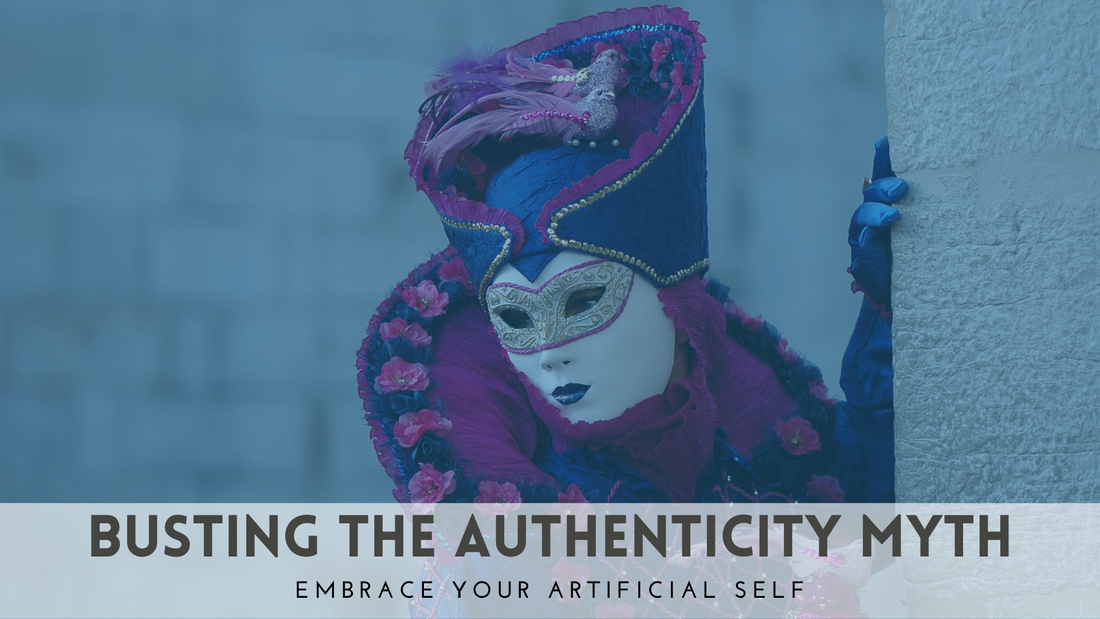
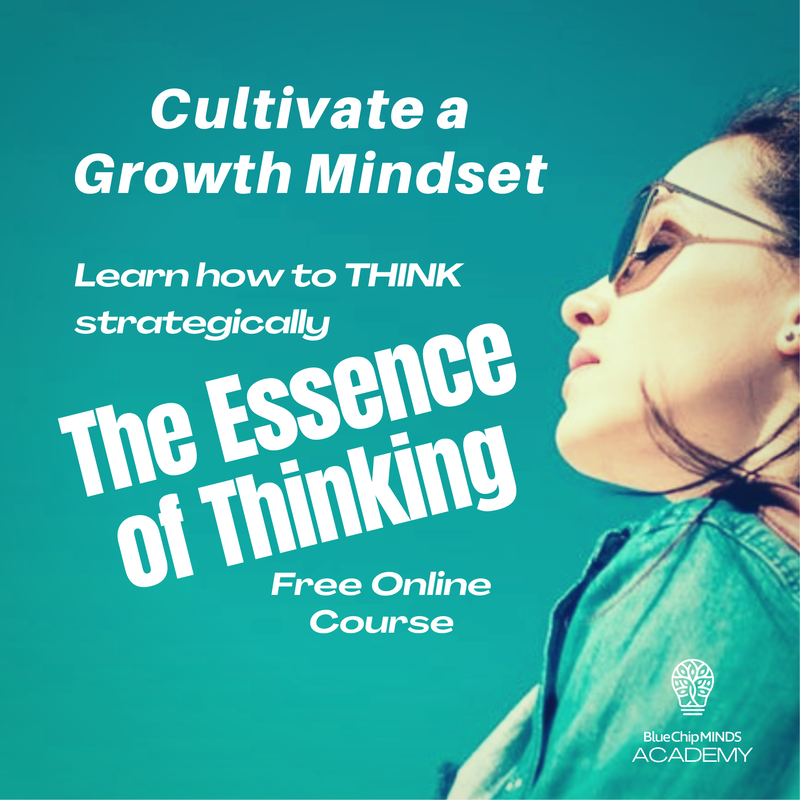
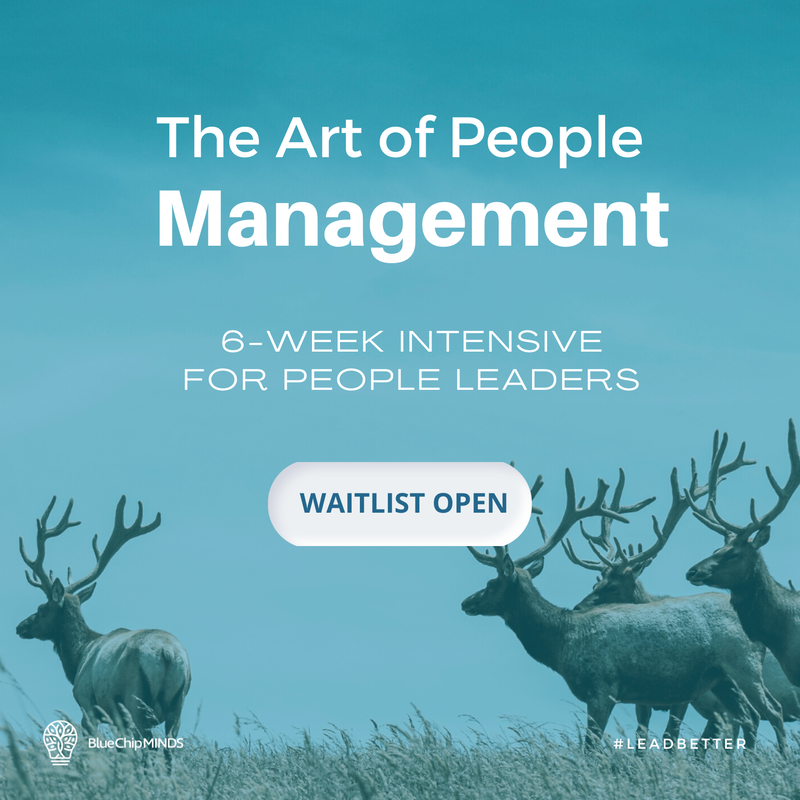

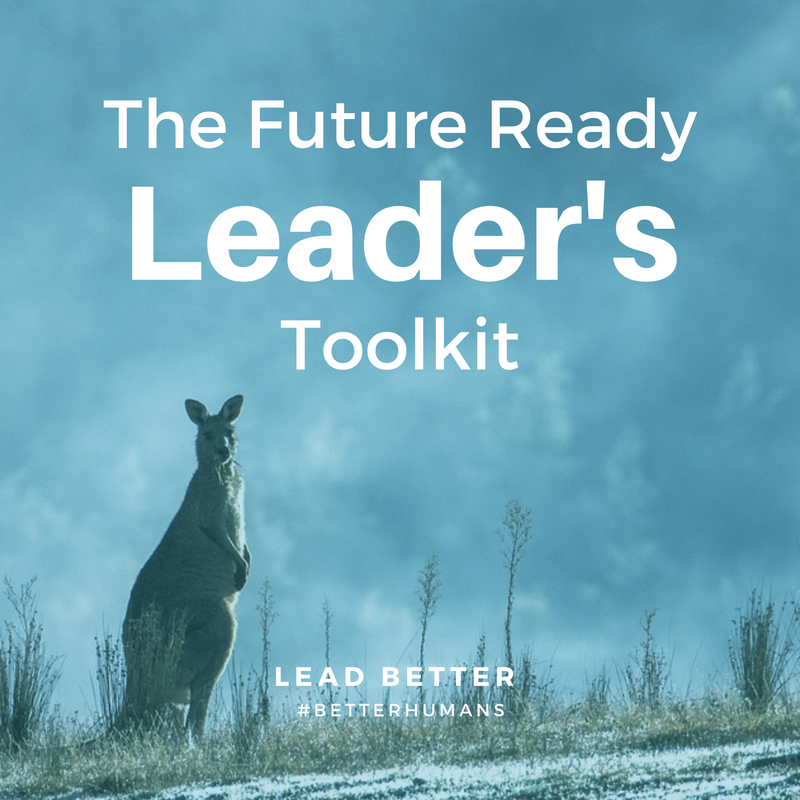
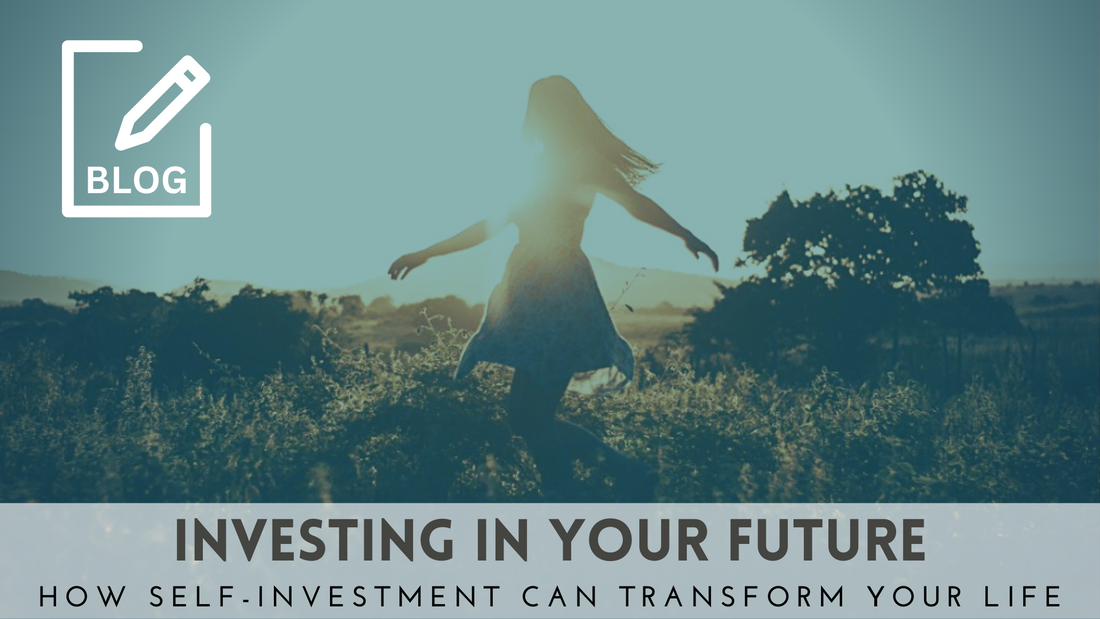
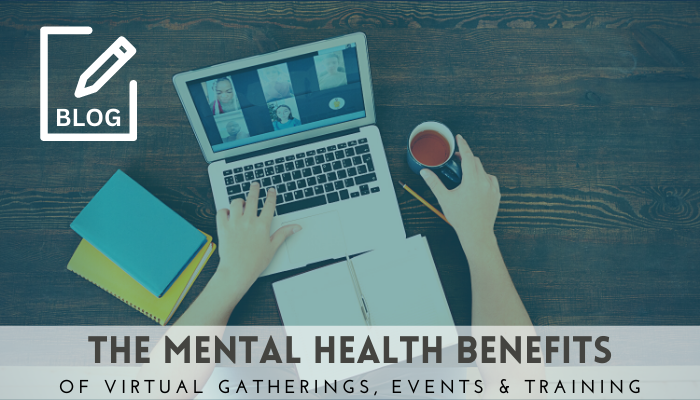

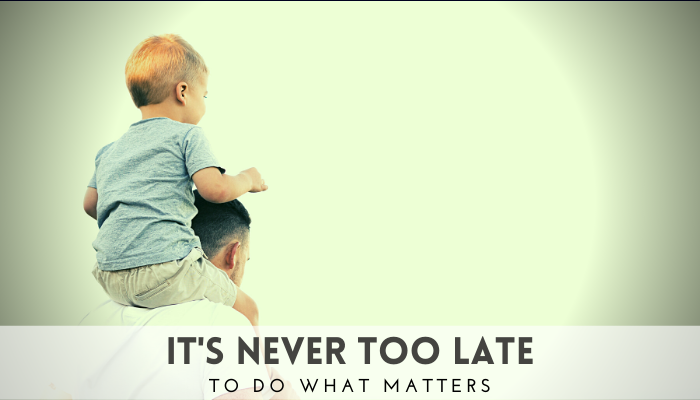




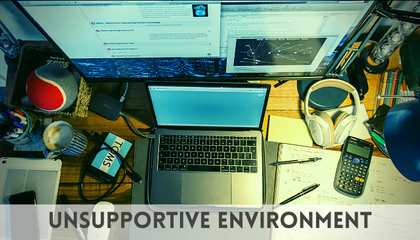



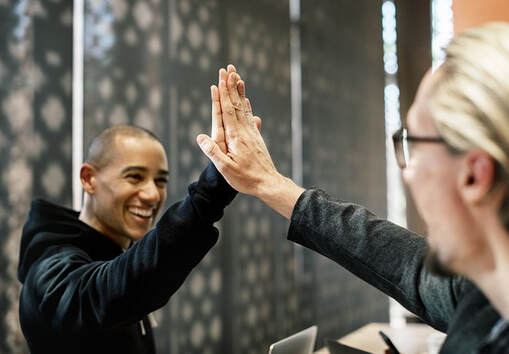

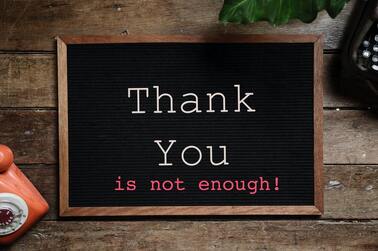



 RSS Feed
RSS Feed
